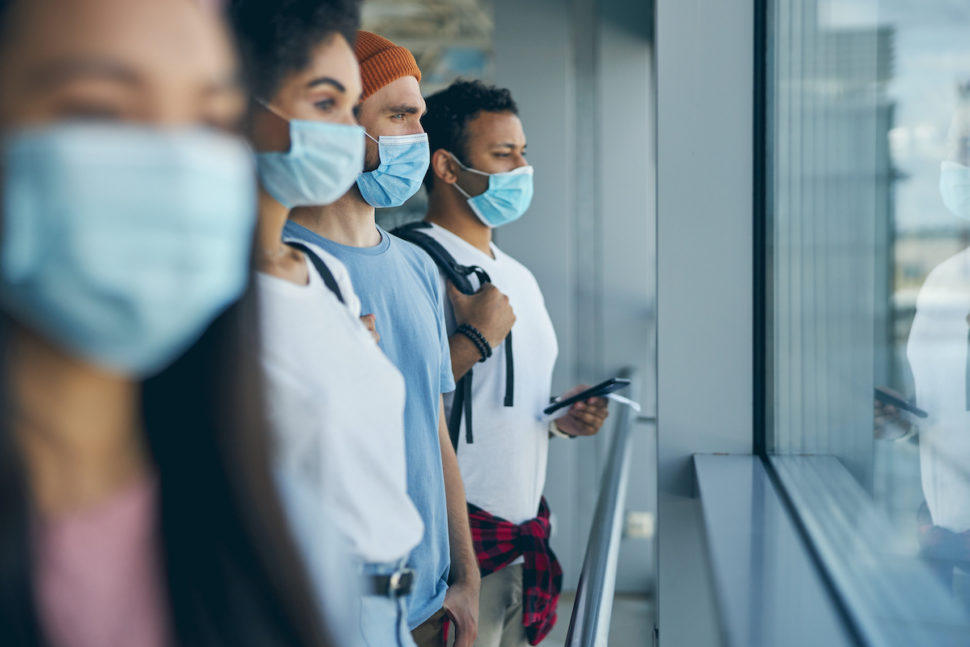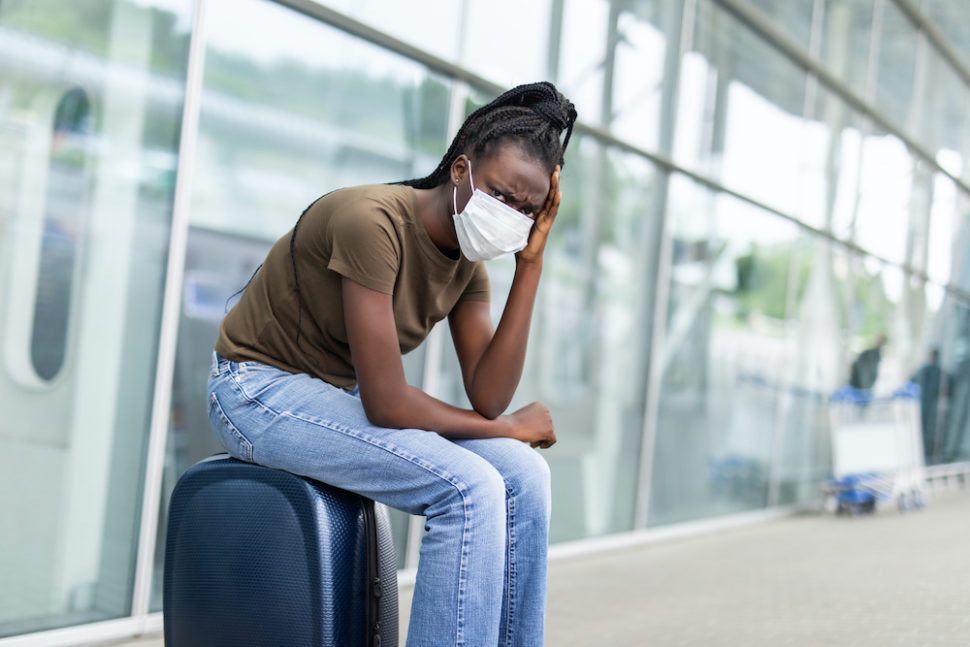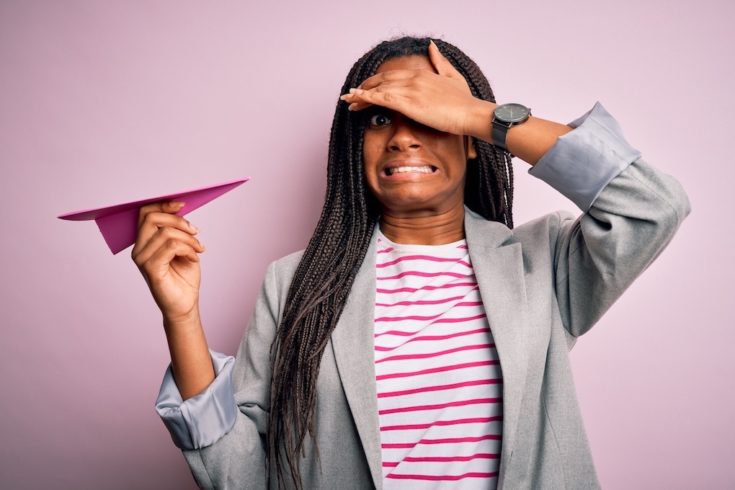It seems that at least 2-3 times a week, we are telling you about yet another instance of an unruly passenger causing a disturbance in the air. It’s like they are losing their minds, mid-air. Sometimes, air marshals and flight attendants are able to control the passenger, and in other cases, the plane must be diverted so authorities can handle it.
Around March 2020, we saw thousands of flights get canceled across the globe. While not all borders are open, even at the time of this post, travel is on the rise again more than a year later.

The instances of unruly flyers have resulted in everything from flight attendants being punched, people attempting to breach the cockpit, and in some cases, people jumping from a moving plane. And sadly, these were only within the last few months.
We wanted to dig a little deeper to see if there was any reason behind this uptick in bizarre plane behavior and people losing their minds. Travel Noire consulted with 30+ year psychologist, Dr. Leo Flanagan, PhD., to get his expert opinion on today’s flying climate.
“The fact that as of July 21, 2021, the FAA has reported 3,509 incidents of airline passengers losing their minds on planes or being unruly is a direct result of our brain—specifically the amygdala and limbic system— performing as it is designed to in a tremendously abnormal situation,” he said. “The limbic system is designed to arouse our mind and body to take flight or fight when any threat is perceived. Usually, when a threat is no longer present, the brain and body return to normal levels.”
Dr. Flanagan credits the eagerness for many to get back on a plane to see loved ones, or even to vacation— for the first time in over a year— as a trigger of anxiety. Simply going through an airport and the process of getting onto your flight safely, can be frustrating and ultimately perceived as a threat for some.

“We’re literally wired to try to take flight or fight at the sign of even the most minor threat. Now from the moment you leave for the airport, to walking through the terminal, to passing through TSA, to waiting to board, to being on the plane, everything has become different. And those differences often are perceived as threats. Social distancing and wearing masks are both necessary protections and signals that we are in an unsafe/threatening situation.”
He added, “Simply bumping into fellow passengers as we find our seats is now perceived as a threat. The same is true when flight attendants politely ask passengers to wear a mask. The request is perceived as a threat. These are threats the passenger can’t flee from. The only neurological option is to fight. And that is exactly what the pandemic has wired them to do. Unfortunately, unruly airline passengers are only one of the most visible signs of anger and unruly behavior we are experiencing. The same will happen as we go back to the workplace, theaters, restaurants, and schools.”
To help mitigate future instances of people losing their minds on planes, Dr. Flanagan offered a few tips:
- Stop using the words “going back” and “returning”. When the mind expects to encounter the “good old days” and instead encounters a very different experience, anxiety is boosted and so are the neurological demands to fight or take flight. Use the words “going forward” and remind people that things will be different.
- Focus passengers on envisioning what they will enjoy after the flight lands: Here’s two equally polite options for asking a passenger to where a mask: “Who are you traveling to see? Tell me what that will be like. Wow, that’s going to be wonderful. Hey, can you help us out and put your mask on, so we can get you to see ____ as soon as possible?” or “Please put your mask on, so we can take off.” “The second option triggers the amygdala and the part of the prefrontal cortex that creates self-judging and a resistance to change. The first option begins by triggering the part of the prefrontal cortex that inspires us and motivates us to change. So, when the request to put on a mask is made, we are neurologically and psychologically ready to accept it,” he explained.
- Develop the resilience of flight crews and gate attendants. These folks come to work each day knowing that they are at risk for encountering an unruly – perhaps violent passenger. Naturally, that causes the amygdala to put them in a state of hyperarousal which impairs, perceptual, cognitive and social abilities. All of which are essential to managing unruly passengers.
About Dr. Leo Flanagan, PhD.
Leo F. Flanagan, Jr., Ph.D., has more than 30 years of experience in studying and developing resilience. He has deep expertise in developing resilience at the individual, team, organizational and community level. He has responded to numerous disasters including 9/11, the Sandy Hook Newtown Shooting, Hurricane Sandy, and the Moore, OK EF-5 tornado. In the aftermath of 9/11, he developed and facilitated programs for First Responders serving over 300 of those who served at Ground Zero.
Leo earned his Ph.D. at City University of New York, his M.A. at Hunter College and his B.A. at Fordham University. Leo and his wife Maureen have four daughters. They also share a passion for travel as well as skiing, tennis, and sailing. Leo is also an avid fisherman. Connect with Leo F. Flanagan, Ph.D. on LinkedIn and visit www.centerforresilience.com. Thriving in Thin Air: Developing Resilience in Challenging Times is now available on Amazon.
